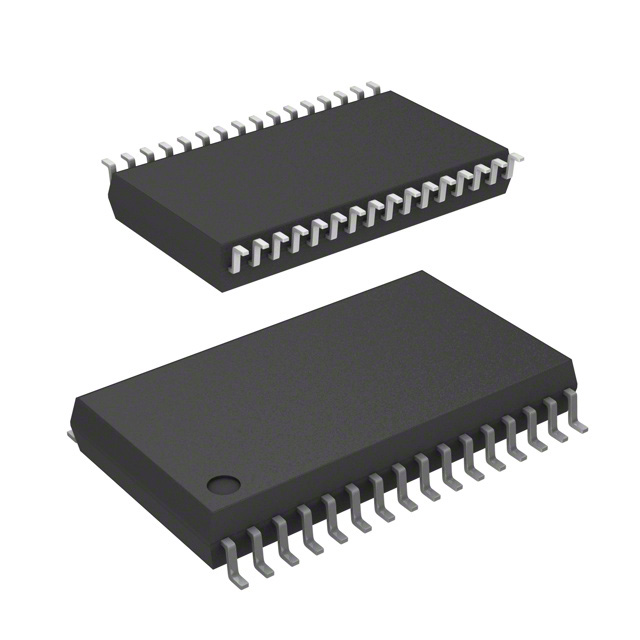Number of ADC Inputs
:
Supply Voltage - Max
:
Supply Voltage - Min
:
Operating Supply Voltage
:
Packaging
:
Resolution
: 24 bit
Minimum Operating Temperature
: - 10 C
Package / Case
: SOIC-28
Maximum Operating Temperature
: + 50 C
Pinout Description
DescriptionThe CS5397-KS is complete analog-to-digital converters for stereo digital audio systems. They perform sampling, analog-to-digital conversion and antialias filtering, generating 24-bit values for both left and right inputs in serial form at sample rates up to 100 kHz per channel.
The CS5397-KS use a patented 7th-order, tri-level deltasigma modulator followed by digital filtering and decimation,which removes the need for an external anti-alias filter. The ADCs use a differential architecture which provides excellent noise rejection.The CS5397-KS has a linear phase filter optimized for audio applications with ±0.005 dB passband ripple and >117 dB stopband rejection. The CS5397 has a nonaliasing filter response with ±0.005 passband ripple and >117 dB stopband attenuation. Other features available in both the CS5397-KS is an optional low group delay filter and a unique psychoacoustic noise shaping filter which subjectively truncates the output to 16, 18 or 20 bits while 24-bit sound quality is preserved.The CS5397-KS is targeted for the highest performance professional audio systems requiring wide dynamic range, negligible distortion and low noise.
The psychoacoustic filter in the CS5397-KS is based on the paper: "Robert A. Wannamaker, psychoacoustically Optimal Noise Shaping, Journal of the Audio Engineering Society, Vol 40, No 7/8, 1992 July/August."The default coefficients in the CS5397-KS is the FIR 9-tap filter coefficients described in Table 3 of the paper. Since the effective noise shaping function is (1-H), the CS5397-KS registers save the (1-H) function coefficients. Therefore, the negative of each filter coefficient is stored in the registers. Each coefficient is represented as a binary 2's complement number where the 4 MSB's represent the whole number of the coefficient and the 4 LSB's represent the fractional portion truncated to 4 binary bits.

 CS5397-KS Data Sheet
CS5397-KS Data Sheet








